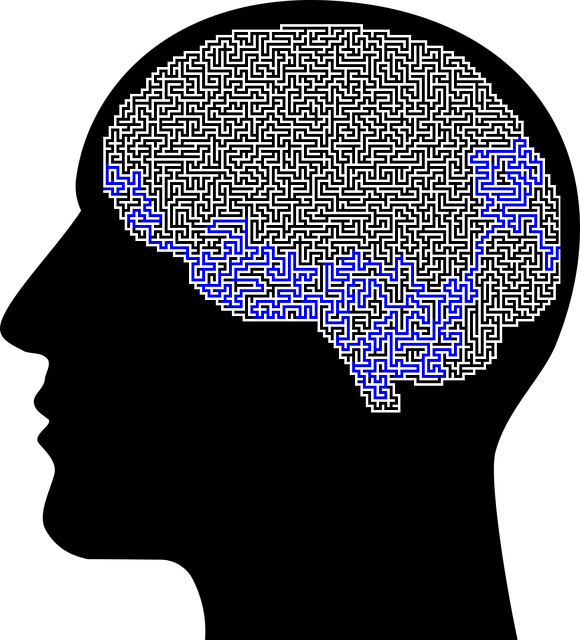Arvada Obsessive Compulsive Disorder (OCD) Therapy offers specialized support for individuals struggling with recurring unwanted thoughts and repetitive behaviors, which significantly impact daily life. Crisis intervention techniques, including emotional intelligence and mindfulness, provide immediate relief. Long-term management involves personalized therapy options like Cognitive Behavioral Therapy's Exposure and Response Prevention (ERP) and compassion cultivation practices. Holistic approaches, combined with ongoing support, ensure comprehensive strategies for effective OCD relief in Arvada.
In the face of distressing symptoms, individuals struggling with Obsessive Compulsive Disorder (OCD) in Arvada require effective crisis intervention strategies. This article guides readers through understanding OCD’s gripping impact and unique manifestations. We explore immediate support techniques for acute crises, emphasizing swift relief. Additionally, we delve into long-term management and therapy options tailored to Arvada OCD relief, empowering individuals on their path to recovery. Discover expert strategies to navigate this challenging disorder.
- Understanding Obsessive Compulsive Disorder (OCD): Symptoms and Impact
- Crisis Intervention Strategies for OCD: Immediate Support Techniques
- Long-Term Management and Therapy Options for Arvada OCD Relief
Understanding Obsessive Compulsive Disorder (OCD): Symptoms and Impact

Obsessive Compulsive Disorder (OCD) is a mental health condition characterized by intrusive thoughts and repetitive behaviors that individuals feel compelled to perform. The symptoms can significantly impact daily life, causing severe anxiety and distress. Individuals with OCD often experience obsessions, which are persistent, unwanted thoughts or images, and compulsions, the urge to engage in specific rituals to alleviate the anxiety triggered by these obsessions. These rituals can range from washing and cleaning excessively to checking over and over again if a task has been completed correctly.
The impact of OCD is profound, affecting not only an individual’s mental well-being but also their social and professional lives. Those suffering from it may struggle with time management, as the compulsion to perform certain tasks can consume significant amounts of time. Empathy building strategies and compassion cultivation practices have shown promise in managing OCD symptoms. Mental health professionals play a crucial role in assessing risks associated with this condition through comprehensive evaluations, which include understanding the individual’s unique obsessions and compulsions. Arvada Obsessive Compulsive Disorder Therapy offers specialized support to help individuals manage their symptoms, restore functionality, and improve overall quality of life.
Crisis Intervention Strategies for OCD: Immediate Support Techniques

In moments of crisis, particularly when facing an episode of Obsessive Compulsive Disorder (OCD), immediate support techniques play a pivotal role in managing symptoms and providing relief. Crisis intervention strategies tailored for OCD focus on offering a calming presence and practical tools to help individuals regain a sense of control. One such approach emphasizes emotional intelligence, where therapists assist clients in recognizing and understanding their emotions during a crisis. This involves teaching coping mechanisms like deep breathing exercises and mindfulness techniques to reduce anxiety and panic.
Moreover, public awareness campaigns development has been instrumental in destigmatizing OCD and promoting understanding among the general public. These initiatives often highlight the importance of early intervention and encourage individuals experiencing symptoms to seek professional help. Additionally, mood management strategies are integrated into crisis intervention plans for OCD. This may include cognitive-behavioral techniques to challenge unhelpful thought patterns and behaviors, gradually exposing individuals to anxiety triggers while teaching them effective coping strategies to manage their moods during crises.
Long-Term Management and Therapy Options for Arvada OCD Relief

In the long term, managing and overcoming Arvada Obsessive Compulsive Disorder (OCD) involves a combination of therapy options tailored to the individual’s specific needs. Cognitive Behavioral Therapy (CBT), particularly Exposure and Response Prevention (ERP), has proven effective in treating OCD. Through ERP, individuals learn to confront their fears without performing compulsions, gradually reducing anxiety over time. This process fosters self-awareness exercises and helps establish healthier mind over matter principles.
Complementing CBT, compassion cultivation practices can significantly enhance recovery. Encouraging clients to develop kindness and understanding towards themselves and others promotes a sense of self-acceptance, reducing the harsh internal critique often associated with OCD. These holistic approaches, combined with ongoing support groups or individual therapy sessions, offer comprehensive long-term management strategies for Arvada OCD relief.
In addressing Arvada Obsessive Compulsive Disorder (OCD), a multifaceted approach is essential. While immediate crisis intervention strategies offer vital support, long-term management and therapy are key to sustained relief. Understanding the symptoms and impact of OCD empowers individuals and their loved ones to seek help and navigate a path towards recovery. Effective therapies, tailored to each person’s unique needs, can significantly improve quality of life, offering hope and a future free from the constraints of OCD.









